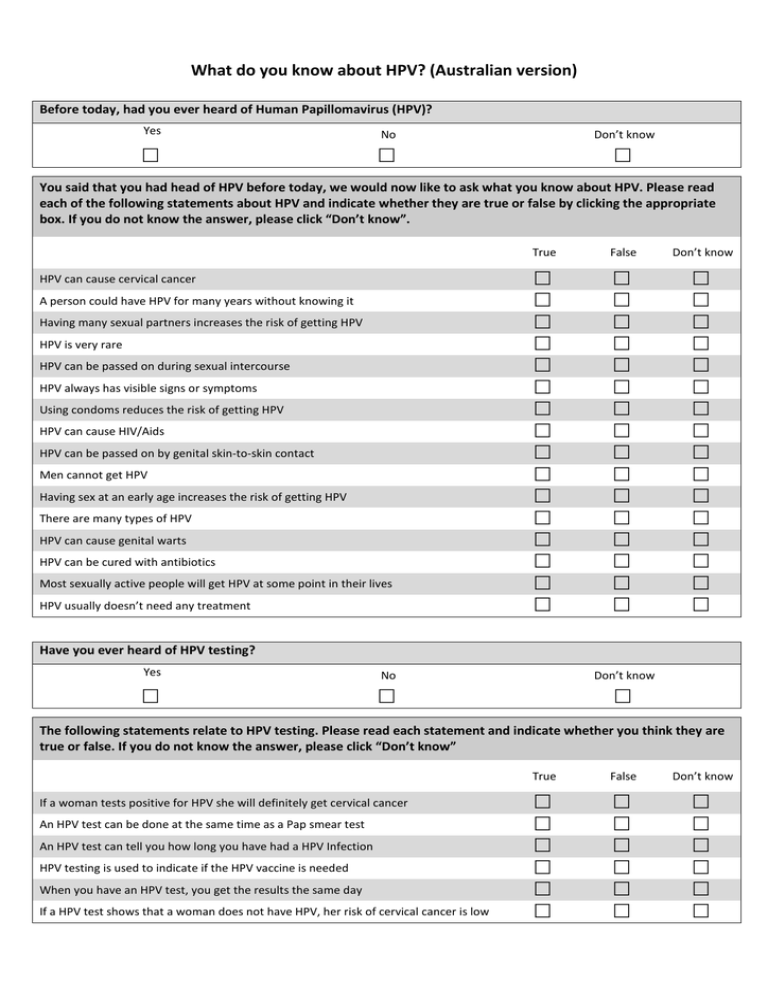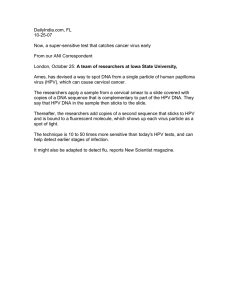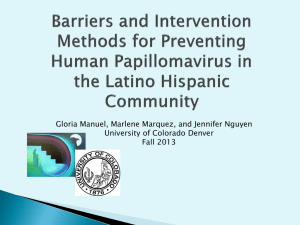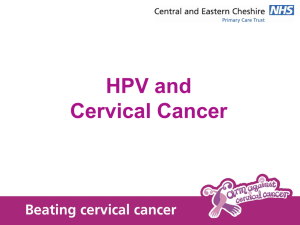
What do you know about HPV? (Australian version)
Before today, had you ever heard of Human Papillomavirus (HPV)?
Yes
No
Don’t know
You said that you had head of HPV before today, we would now like to ask what you know about HPV. Please read
each of the following statements about HPV and indicate whether they are true or false by clicking the appropriate
box. If you do not know the answer, please click “Don’t know”.
HPV can cause cervical cancer
A person could have HPV for many years without knowing it
Having many sexual partners increases the risk of getting HPV
HPV is very rare
HPV can be passed on during sexual intercourse
HPV always has visible signs or symptoms
Using condoms reduces the risk of getting HPV
HPV can cause HIV/Aids
HPV can be passed on by genital skin-to-skin contact
Men cannot get HPV
Having sex at an early age increases the risk of getting HPV
There are many types of HPV
HPV can cause genital warts
HPV can be cured with antibiotics
Most sexually active people will get HPV at some point in their lives
HPV usually doesn’t need any treatment
True
False
Don’t know
Have you ever heard of HPV testing?
Yes
No
Don’t know
The following statements relate to HPV testing. Please read each statement and indicate whether you think they are
true or false. If you do not know the answer, please click “Don’t know”
If a woman tests positive for HPV she will definitely get cervical cancer
An HPV test can be done at the same time as a Pap smear test
An HPV test can tell you how long you have had a HPV Infection
HPV testing is used to indicate if the HPV vaccine is needed
When you have an HPV test, you get the results the same day
If a HPV test shows that a woman does not have HPV, her risk of cervical cancer is low
True
False
Don’t know
Before today, had you ever heard of HPV vaccination?
Yes
No
Don’t know
The following statements relate to the two HPV vaccinations that are available. Please read each statement and
indicate whether you think they are true or false. If you do not know the answer, please click “Don’t know”
Girls who have had an HPV vaccine do not need a Pap smear test when they are older
One of the HPV vaccines offers protection against genital warts
The HPV vaccines offer protection against all sexually transmitted infections
Someone who has an HPV vaccine cannot develop cervical cancer
The HPV vaccines offer protection against most cervical cancers
HPV vaccines require three doses
HPV vaccines are most effective if given to people who have never had sex
True
False
Don’t know
The following statements relate to the availability of HPV vaccination in Australia. Please read each statement and
indicate whether you think they are true or false. If you do not know the answer, please click “Don’t know”
True
False
Don’t know
The HPV vaccine is offered free to women aged 30-45 years
The HPV vaccine that is offered free (as part of the national immunization program)
protects against genital warts and cervical cancer
The HPV vaccine is offered free to boys aged 12-18 years
The HPV vaccine is offered free to girls aged 12-13 years
The HPV vaccine is usually offer in schools




